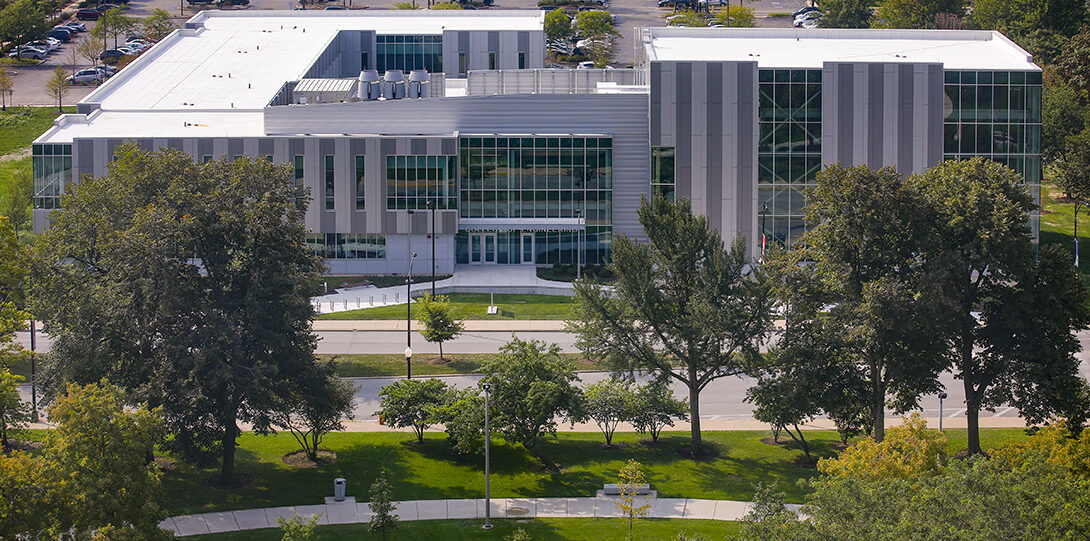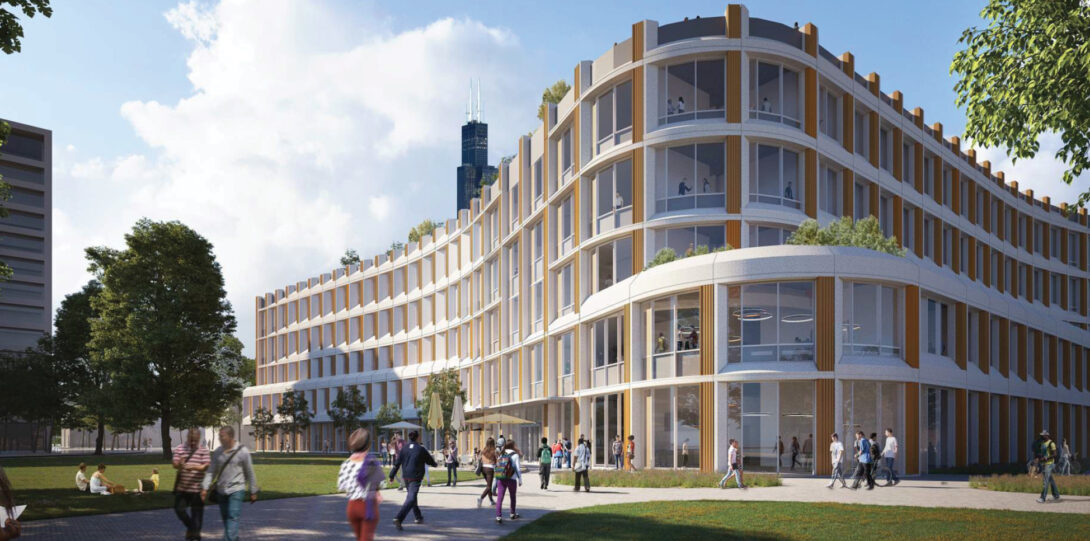Planning, Sustainability and Project Management (PSPM) coordinates campus master plans, space and capital plans, designs learning environments, manages the design and construction of buildings and grounds projects, maintains campus facility records, manages over 16 million square feet of space in 194 buildings across 250 acres and develops strategies, services and programs to achieve the UIC Climate Commitments.
PSPM is organized into the following service areas to enable us to achieve our mission and vision:
- Planning and Design
- Sustainability
- Project Management
- Facility Information Management (FIM)
- Business Services
Mission Heading link
We collaborate with stakeholders to create sustainable environments that allow for teaching and learning, research, health care, and community engagement to flourish.
Vision Heading link
We envision and transform the UIC campus to inspire excellence and enhance equity.


